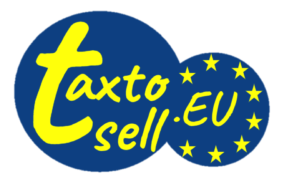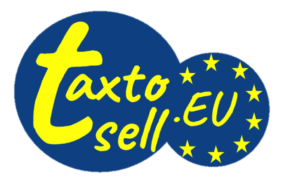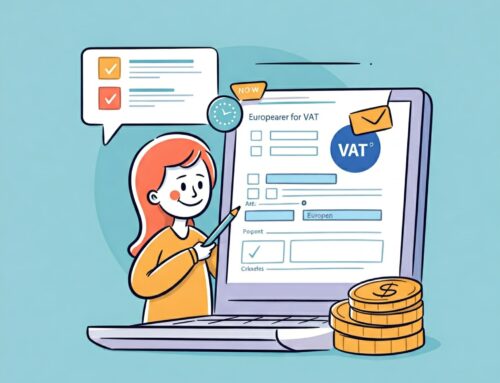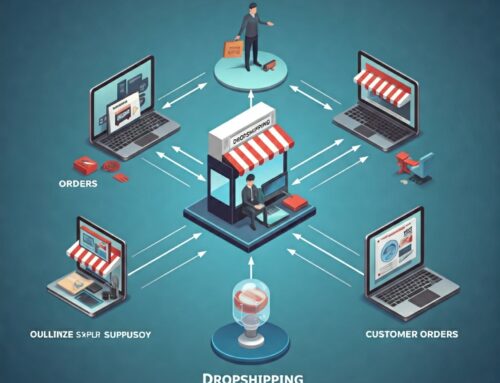This article has been written after the the substantial change in VAT regulation of July 2021.
Welcome to our article about VAT exemptions in the European Union. Value-added tax (VAT) is a consumption tax on goods and services that is levied in most countries around the world, including all 27 member states of the EU. However, there are several exemptions to VAT that businesses operating in the EU need to be aware of. In this article, we will provide you with an overview of the EU VAT rules, the different types of exemptions available, special VAT schemes, minimum working hours standards, and information on how to access the Compliance Services Portal for eCommerce, which can make selling and trading within the EU easier. So, whether you’re a business owner, an accountant, or just interested in learning more about VAT exemptions in the EU, keep reading.
Overview of EU VAT Rules
The European Union has established rules for the application of Value Added Tax (VAT) that are applicable to all countries belonging to it. The VAT Directive sets out the framework for this taxation, specifying the scope, computation and collection of it. Generally, this levy applies to all goods and services sold within the EU, although there are certain exceptions and reduced rates that vary between nations.
Businesses selling goods or services within the EU should be aware of the basic regulations concerning VAT. The standard rates in most nations is between 17% and 27%, although in certain cases a lowered rate can be applied to specific items such as food, books, and medical supplies. Moreover, some activities are exempt from VAT, for example education, healthcare, and financial services. This may or may not enable the right to deduct the tax depending on the member state.
The VAT system in the EU is intricate, and it is of great importance to adhere to the rules to avoid penalties and fines. To facilitate the sale and transaction of goods within the EU, the Compliance Services Portal for eCommerce offers access to all EU VAT reporting schemes. It grants businesses the ability to enrol for VAT in multiple member states and submit VAT returns electronically. Furthermore, the portal provides guidance and support for VAT compliance and assists companies in understanding the various VAT regulations of each member state.
EU VAT Exemptions
When it comes to conducting business in the European Union, one of the most important considerations is understanding the various tax reliefs that are available. These can range from intra-EU purchases and imports, to special schemes which allow firms to trade without having to charge any taxes up to a certain limit and following certain conditions. Navigating this complex web of regulations requires expertise, and it is essential to work with specialists who can help you understand how to abide by the varying VAT laws in different EU countries. Taking advantage of any potential tax exemptions can be incredibly beneficial for businesses looking to reduce their tax burden.
The Compliance Services Portal for eCommerce recently launched in the EU is an invaluable resource for companies looking to trade and sell within the bloc. This portal provides access to all EU VAT reporting systems, making it easier than ever to stay in compliance with the relevant regulations, as well as take advantage of any available tax exemptions.
Overall, it is essential for businesses operating in the European Union to be aware of the various tax exemptions available to them. Not only can this help reduce their tax burden, but it is also important to understand the complex web of regulations in different EU countries. With the Compliance Services Portal, companies have a valuable tool to help them stay on top of the regulations as well as take advantage of any available tax exemptions.
EU VAT Exemptions with the Right to Deduct
For business owners selling goods or services within the European Union, it is essential to comprehend the rights to deduct associated with the applicable tax exemptions. These benefits enable you to subtract the taxes paid on any products or services acquired for the business, decreasing your tax responsibility. However, it is critical to make sure you meet the terms to be entitled to these exemptions, as incorrect or incomplete records can lead to penalties and fines. To make sure your company is compliant and making the most of the available tax advantages, consider utilizing the one stop Compliance Services Portal for eCommerce, which provides access to all EU VAT reporting plans.
Comprehending the rights to deduct linked to the relevant tax exemptions is critical for companies aiming to decrease their tax load. Some examples of products or services that may qualify for this exemption include those used for business purposes, such as office supplies, equipment, and vehicles. Note that certain requirements must be met, like providing appropriate paperwork and ensuring that the goods or services are exclusively used for business objectives. Utilizing the Compliance Services Portal for eCommerce can help make sure you have access to the necessary data and resources to claim these exemptions correctly, providing peace of mind and potential tax savings for your business.
EU VAT Exemptions without the Right to Deduct
When it comes to tax relief in the European Union, certain activities are excluded from the right to deduct value-added tax. These activities, such as healthcare and education, are deemed to be essential to society and the economy. Consequently, the VAT exemption applies to the entire transaction, meaning the business cannot reclaim the VAT paid for any purchases related to it. This can lead to increased costs for firms that are unable to reclaim the levy.
In addition, financial and insurance services are also exempt from VAT as they are hard to tax due to the difficulty in identifying where the service is being consumed. This cover a broad range of financial activities, for example, payment transactions, credit and insurance, with a few exceptions such as certain fund management services. It is essential for businesses to understand the implications of a vat exemption, as it can significantly affect their profit margins.
Intra-EU Acquisitions and Importation Exemptions
Navigating the various regulations governing intra-EU acquisitions and importation is critical for businesses to take advantage of the fiscal benefits they offer. The Compliance Services Portal for eCommerce provides a comprehensive suite of resources to ensure businesses have all the necessary information related to VAT reporting schemes. This includes information on standard EU rules, reduced rates in member states, and exemptions with and without the right to deduct.
The one-stop-shop system is a key advantage of these exemptions. This system simplifies VAT reporting by allowing businesses to declare and pay taxes on all sales across the EU through a single country. This makes it easier and more cost-effective for businesses to engage in cross-border trade, while also reducing the administrative burden of complying with different VAT regulations.
Double taxation is another issue that can be avoided through the use of intra-EU acquisitions and importation exemptions. Without these exemptions, businesses would be liable for VAT in both the country of purchase and the country of sale, creating a significant burden and disincentivizing cross-border trade. The exemptions ensure that VAT is charged only once, in the country where the goods are sold, creating a level playing field and avoiding market distortions.
Businesses should take the time to understand all the rules and regulations related to intra-EU acquisitions and importation exemptions for optimum benefit. Those looking to learn more about the Compliance Services Portal for eCommerce should consider taking the VAT exemption transactions course available on the portal. Alternatively, speaking to a professional can help businesses understand how to access the portal and its various resources.
Special EU VAT Schemes
Businesses trading within the European Union can benefit from a range of advantageous schemes that allow them to run without charging taxes under specific circumstances and yearly limits. These initiatives aspire to assist small and medium enterprises and make it easier for companies with cross-border operations to stay compliant with VAT regulations. The most popular ones are the Import One Stop Shop (IOSS), and the One Stop Shop (OSS) which cover a variety of services and products, from digital services to goods sold via online marketplaces. Though each of these schemes is subject to distinct rules and requirements, companies can benefit from them by lowering their vat rates and simplifying their VAT reporting. Therefore, it is recommended to ask for specialized advice and explore the available EU VAT schemes to find the ones that best suit your business needs and objectives. Registration in OSS with professional advice is easy, and it will allow you to start online selling in EU!
For any doubt concerning EU VAT for online selling in EU, ask our online tax consultant!
Minimum Working Hours Standards in the EU
The European Union has instituted regulations to safeguard the rights of employees, mandating minimum weekly working hours across all member states. These standards range from 35 to 48 hours, though some countries have imposed even tighter limits. For instance, France has capped the minimum requirement at 35 hours per week.
However, certain nations have opted out of these measures, such as the United Kingdom, which has its own regulations in place. Similarly, Greece has also chosen to forgo the EU minimum working hours standards, instead implementing its own protections for workers.
Companies must abide by the EU guidelines or face legal repercussions. It is thus important for employees to be aware of their rights and to report any violations of the minimum working hours standards. The EU has taken steps to guarantee the safety of its workers, and employers must abide by these regulations. Furthermore, self-employed individuals are not subject to the EU’s minimum working hours standards and are instead governed by their own regulations.
Compliance Services Portal for eCommerce
For eCommerce businesses based in the European Union, it is essential to observe the necessary rules and regulations concerning Value Added Tax (VAT). Thankfully, there’s a practical solution – the Compliance Services Portal for eCommerce. This helpful resource provides access to all EU VAT reporting schemes, making it easier for companies to deal within the region.
The Compliance Services Portal for eCommerce also offers details about special schemes in many EU countries, which allow businesses to trade without applying a VAT charge. This can be of great benefit for startups or smaller companies, saving them time and money while staying compliant with the European Union’s VAT regulations.
Moreover, the portal provides information about the minimum working hours standards set in the EU, allowing companies to make sure they are providing fair and safe working conditions for their employees. Furthermore, businesses are guided on the supply of goods and services that can be exempt from VAT, and the website provides links to resources with information regarding standard VAT rules, reduced rates, and exemptions with or without the right to deduct.
In conclusion, the Compliance Services Portal for eCommerce is a valuable tool for businesses that want to ensure they are complying with the European Union’s VAT regulations. This portal provides access to all EU VAT reporting schemes, special schemes in many countries, and information about minimum working hours standards, standard EU VAT rules, reduced rates, and exemptions with or without the right to deduct.
Conclusion
In conclusion, understanding the VAT system in the European Union is vital for businesses operating within its borders. With standardized rules on VAT at the EU level, it’s crucial to be aware of the different exemptions and schemes available to businesses to ensure compliance and avoid penalties. The Compliance Services Portal for eCommerce is an excellent resource for those looking to navigate the complex world of VAT reporting schemes in the EU. However, it’s essential to consult with an expert to ensure that your business is following the correct procedures and taking advantage of all available exemptions. With the right knowledge and tools, businesses can streamline their VAT reporting and trading within the EU, making it easier to thrive in this dynamic market.





